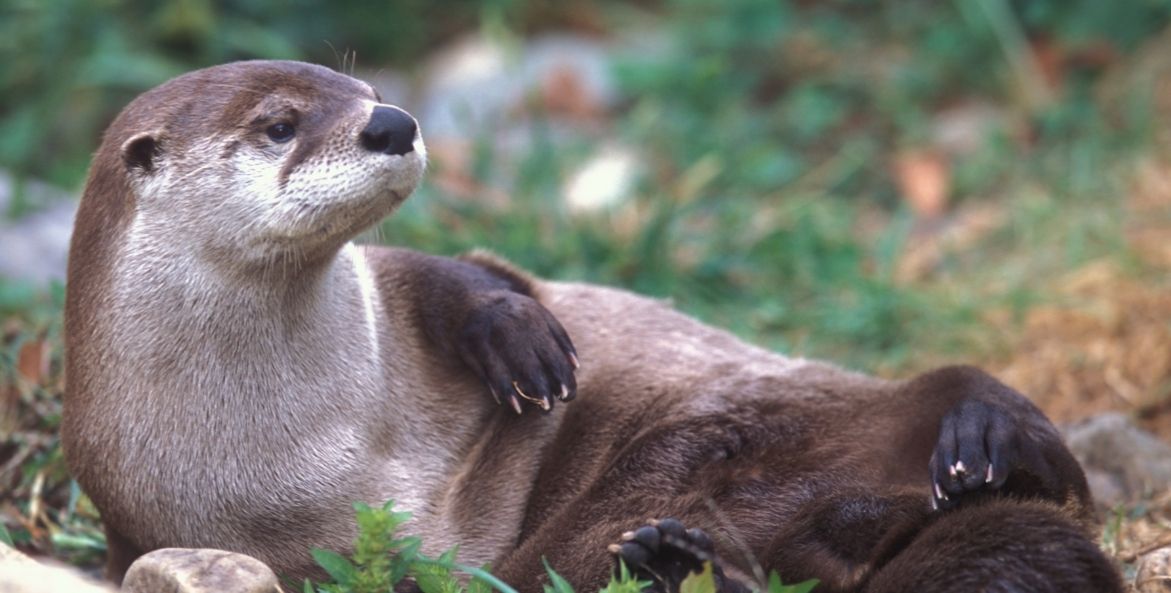When you think of local critters, North American river otters pretty much take the cake in terms of cuteness. Their playful nature and sweet faces make them a favorite here in Chesapeake country. Otters’ elusiveness makes a sighting all that more special.
While we love to see them, otter encounters can be rare depending on your location in the watershed. But when you do spot them, here are five interesting facts you should know about the North American river otter.
1. They’re one in a million—well, one in thirteen
There are thirteen different types of otters in the world, and two of those species can be found in the U.S.: sea otters and North American river otters. Only the latter is found in the Chesapeake Bay watershed, primarily occupying freshwater tributaries. We’ve heard of sightings across Bay country from the Corsica River on Maryland’s Eastern Shore to Sherwood Lakes in Virginia Beach to the Tidal Basin in D.C . If you keep an eye out—especially around dawn or dusk—you may just be lucky enough to spot one.
2. They’re semi-aquatic mammals
Most of us have heard the term “marine mammals” and understandably assume that all mammals who spend a fair amount of time in the water fall into that category. The difference is that marine mammals, like dolphins, live their whole lives in the water. A semi-aquatic mammal, like the river otter, goes back and forth between land and water. In fact, despite being incredible swimmers, river otters spend about two-thirds of their lives on land.
3. They’re not picky eaters
River otters are mainly carnivorous. Still, they won’t pass up a tasty aquatic plant when the opportunity presents itself. Otters will typically eat anything from fish to frogs to birds’ eggs. This willingness to mix things up comes in handy because otters need to eat a LOT. A high metabolism means they burn about 50 percent more calories in a day than a land animal of similar size.
4. They’re perfect little predators
North American river otters are apex predators, meaning they’re at the top of the food chain. Just like sharks, the presence of otters can often be an indicator of good water quality and ecosystem stability. The role of apex predators is to help control populations of smaller animals that could otherwise take over an area and throw the whole ecosystem out of balance. In fact, one of the biggest threats to river otters is humans in the form of pollution and habitat degradation.
5. They’ll steal your heart
If you haven’t ever watched an otter play, add it to your bucket list. Otters are intelligent, playful creatures by nature. Twirling through the water, rolling around in the snow, and dancing while they poop (yes, that’s true) are all part of what makes watching otters almost mesmerizing. These fascinating critters really are unique watershed residents. In the wild, they live alone or in pairs, but do get together in small social groups for play. While it may appear to be all fun and games, this playtime actually serves a purpose and helps young otters develop survival skills.




